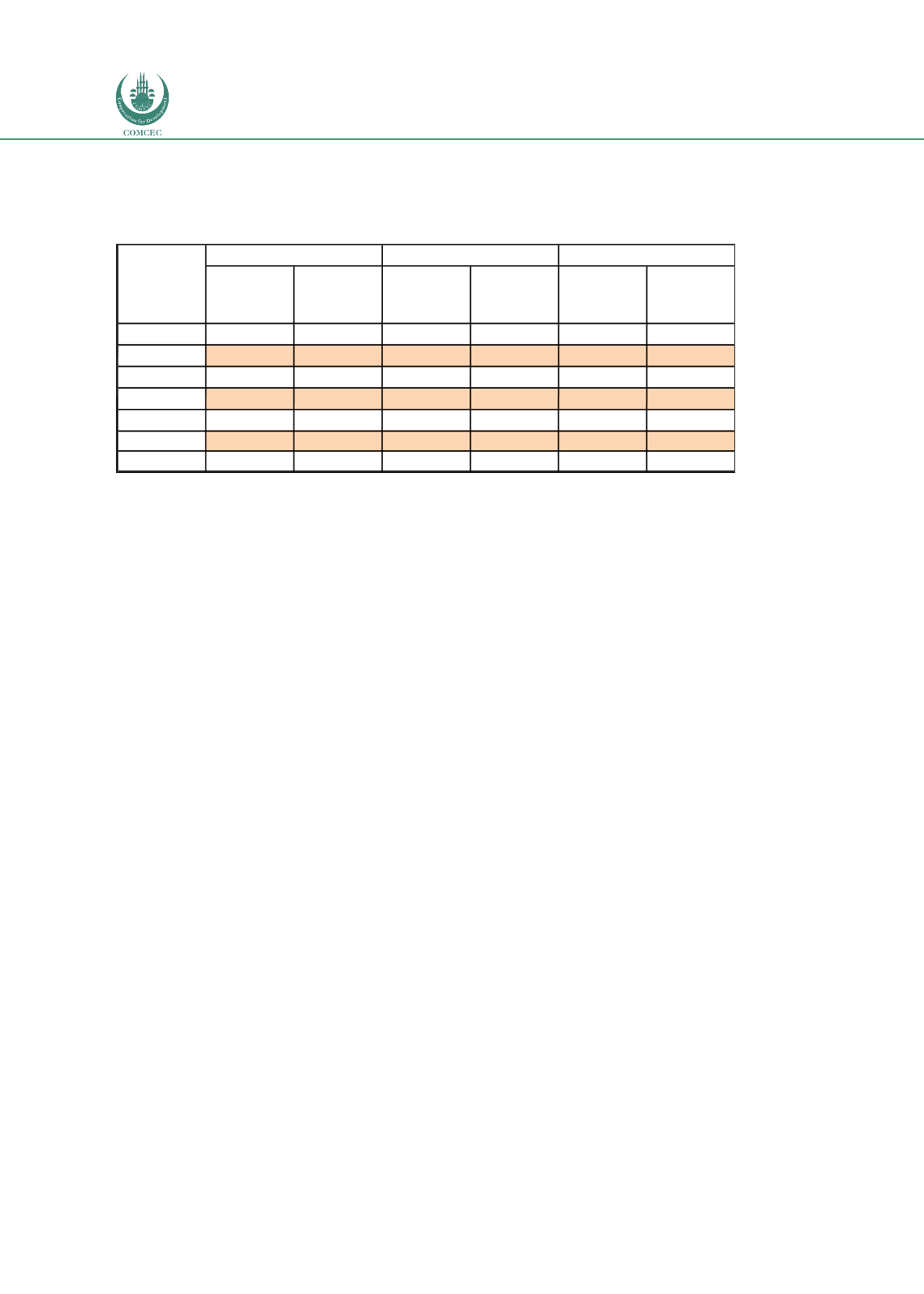

Improving Transnational Transport Corridors
In the OIC Member Countries: Concepts and Cases
120
Algeria, the total cost of export procedures would be over $1,000 while the time taken for the
authorities to process documents, over 260 hours.
Table 32: EoDB of TAH1 corridor countries in 2016
Source: World Bank.
4.5.4.
Trade Facilitation
In this section trade and logistics is looked at; trade because a normal pre-requisite of
international transit transport corridors is that they generate intra-regional trade, not only
facilitating trade with the rest of the world; and logistics performance because a major
constraint for developing trade is poor logistics and correspondingly higher transport costs.
There are a long list of non-physical and non-tariff barriers that normally require serious
attention in all transport corridors and these are listed i
n Appendix 3.Currently, NTBs are not big issues on this corridor as there are mutual procedures followed by
Tunisia, Libya, Algeria, and Morocco. Freight transports between Tunisia and Libya for
example, they only need to pass one document check at the border (Ra’s Ajdir) as they already
have advance manifests. The same goes for the border between Tunisia and Algeria In the past,
before the war in Libya took place, the clearing time at Ra’s Ajdir was less than one day (also
due to the fact that there is one special lane for trucks). Now, it can take 3-4 days due to
security checks in Libya. So currently the border crossing time in Libya is much longer than
that in Algeria (Abid, 2017).
There is a classical asymmetry in trade in all the subject countries, will trading more externally
with Europe than with themselves. The reasons are as follows:
4.
Historic due to colonial relations;
5.
Proximity (for most countries, European Markets are closer;
6.
Due to the border closure between Algeria and Morocco, trade between Tunisia and
Morocco must go via Marseille (France) and Genoa (Italy) through sea shipping. This is
also the case between Tunisia – Egypt. Transit to Europe is chosen for the reasons of
reliability, safety, guarantee/insurance, and above all to avoid the immobilization of
vehicles at the Libyan borders (UTICA, 2017).
EGYPT
122
168
48
258
88
100
LIBYA
188
114
72
575
72
50
TUN
77
92
50
469
3
200
ALG
156
178
118
593
149
374
W. SAHA
N/A
N/A
N/A
N/A
N/A
N/A
MAU
160
137
72
749
51
92
SEN
147
130
61
547
26
96
Country
Ranking
Border Compliance Documentary Compliance
Overall
Trading
across
borders
Time to
export
(hours)
Cost to
export
(USD)
Time to
export
(hours)
Cost to
export
(USD)
















